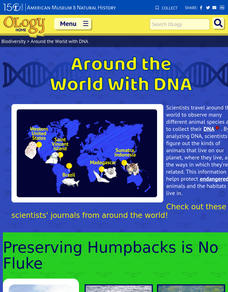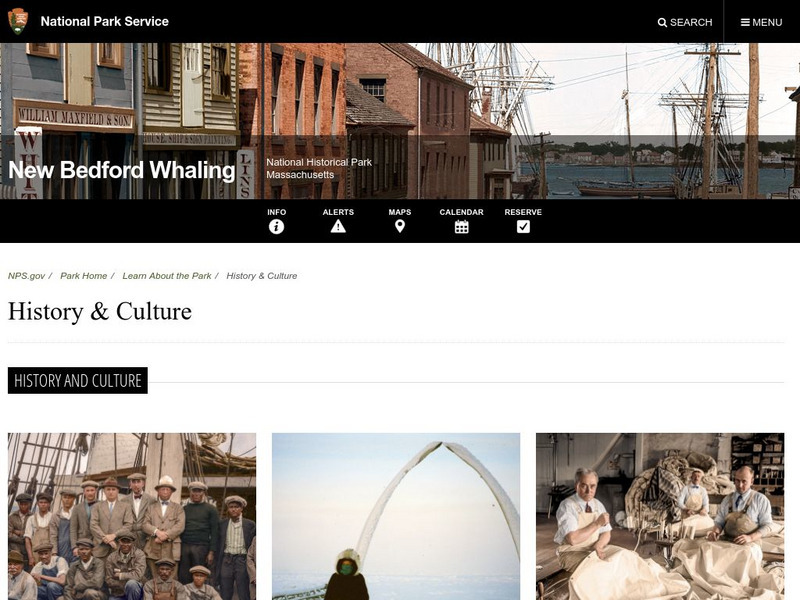American Museum of Natural History
A Whale of a Tale
What's the most interesting fact about a blue whale? Learners read an interview about the similarities between the Titanosaur and the blue whale displays at the American Museum of Natural History. Pupils learn not only about blue whales...
American Museum of Natural History
Around the World with DNA
DNA analysis could be what saves some animals from extinction. An interactive lesson shows learners how DNA information proves variation among animals of the same species and how stakeholders use that information to make decisions. Easy...
American Museum of Natural History
Around with World with DNA
A mammalogist, ornithologist, ichthyologist, and a conservation geneticist share their work and their hopes that their research will help protect and save endangered species and their habitats.
American Museum of Natural History
What's This? Feeding
Some species have pretty creative methods for catching food. Young scientists learn about some interesting ways organisms get the nutrients they need by navigating an online interactive lesson that would be suitable for a remote learning...
American Museum of Natural History
What's the Big Deal About Water?
It may seem simple, but water is one of the most unique substances on Earth. An interactive online lesson describes its properties and importance in so many different situations. Learners interact with the lesson to learn the role water...
Sea World Parks & Entertainment
Sea World: Beluga Whales
An easy to read look at all aspects relating to the beluga whale. The menu bar lists all of the main topics including appearance, habitat, behavior, diet, young, communication, conservation, reproduction, and more. Useful for elementary...
Curated OER
National Park Service: New Bedford Whaling Historical Park: History & Culture
This national park site offers insight into the economic stimulus whaling brought to New England and has left behind a strong history for that region.
Other
Whale Net: Species and Behavior Information
How do whales sleep? How do whales use sound? Discover the answers to these questions and many more as you peruse this site. Includes various links on information and images of many species.
Other
Salariya: You Wouldn't Want to Sail on the Whaling Ship Essex!
This online book for younger readers tells pitfalls of sailing on a New England whaling ship. Although a cartoon format, it contains valid and useful information about whaling in New England.
NOAA
Noaa: Pmel: Acoustic Monitoring, Bioacoustics
Outlines the National Marine Mammal Laboratory's project studying whale acoustics (the sounds whales make). Links to clear acoustics tutorial. Also includes whale biology, with acoustic descriptions and sound clips of their calls. Very...
Other
Whale Net: Satellite Tagging Data, Maps and Information
Information on what satellite tags are, how they work, and how they are used for research on whales. Also discusses several studies they have done using this equipment, and how this information can be used in conservation work. Great...
Other
International Marine Mammal Project: Dolphin and Whale Project
A site authored by the trainer from the original "Flipper" TV show. This site takes the approach that the exploitative use of marine mammals should be stopped.
Annenberg Foundation
Annenberg Learner: Journey North: A Global Study of Wildlife Migration and Seasonal Change
Join teachers and students all over the country in observing the migratory patterns of birds and butterflies and the growth changes of plants as the climate changes. "Journey North" offers a wealth of resources to use as you investigate...
Other
Planet Ark: World Environmental News
Welcome to Planet Ark's daily Reuters World Environment News - the most comprehensive source of environmental news on the Net. To read previous news stories, please use the search engine below to find stories relating to any...











